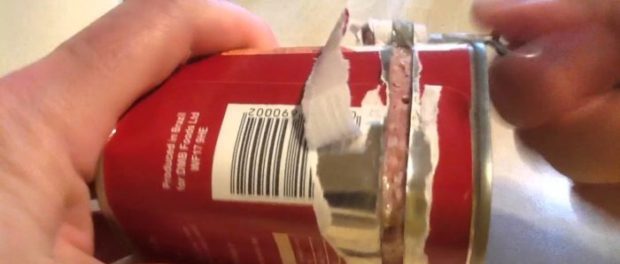BRIDGETOWN, Barbados, Mar 28 2017 – Government has lifted the ban imposed last Tuesday on the importation of corned beef from Brazil, after tests revealed “no concerns about the safety” of the product here.
Senior Veterinary Officer in the Ministry of Agriculture Dr Mark Trotman today sanctioned the resumption of the importation and sale of the canned meat, telling reporters this afternoon there was no evidence of contaminated corned beef entering Barbados from South America’s largest country.
“I have no concerns about the safety of corned beef from a veterinary standpoint. Obviously I cannot make any categorical statements. The laboratory analysis is part of our routine investigations. These types of tests take quite a while. We have to do microbiological analyses on a large number of samples. There are 17 different brands of corned beef in Barbados and we have to take several samples from each brand. We have to do a number of different tests on them. However, based on the information that we have been able to gather, what I can tell you is that I have no concerns about the product,” Trotman said.
Barbados, which imports 99 per cent of its corned beef from Brazil, last week joined a number of Caribbean countries that banned the importation and sale of meat products from that country, after the authorities there announced that major meat processors had been “selling rotten beef and poultry”.
Brazilian police had named the food conglomerate BRF – the world’s largest meat producer – and JBS – the world’s largest food processing company by sales and the biggest poultry exporter – along with smaller companies in a two-year corruption probe.
And, according to Reuters news agency, the police had alleged that the companies had paid inspectors and politicians to overlook the processing of rotten meat and exports with fraudulent documentation and even traces of salmonella.
While Trotman said none of the establishments that produce corned beef for Barbados had been implicated in the police action, there were lingering concerns because this was an issue where federal inspectors with the Brazilian ministry of agriculture were involved in “a bit of corruption”.
“It is a systemic problem that we need to get some clarification about. So while we import probably about 99 per cent of our corned beef from Brazil, it is a massive market and one I think some importers might want to take advantage of. There is a potential systemic issue although the number of inspectors involved was very small compared with the entire Brazilian federal inspection system . . . . It is still important that we get some clarification on it. So we will be working with our regional partners to do this on a regional basis,” he said.
Meanwhile, Chairman of the Retail and Distribution Committee of the Barbados Chamber of Commerce and Industry Anthony Brancker welcomed the lifting of the ban.
“We want to commend the Ministry of Agriculture for the actions it took to secure the health of Barbadians. We are thankful that the investigation was thorough and that we are going to see corned beef back on our shelves,” Brancker said.
Asked about the economic cost to the retail and distributive sector, Brancker admitted that hundreds of thousands of dollars were tied up in inventory, but said it was important to place the health of Barbadians before money.
“Even at this stage we were not really looking at the potential loss. We were looking at safeguarding the lives of Barbadians as our paramount concern. We worked along with the Ministry of Agriculture providing all of the samples necessary so that we would come to a conclusion that was in the best interest of Barbados. We were 100 per cent willing to support the sale of safe and wholesome corned beef to our customers,” Brancker said.
Last Friday, a number of supermarkets managers had told Barbados TODAY the ban had little impact because Barbadians had been moving away from corned beef and gravitating towards canned fish instead. (Barbados TODAY)
